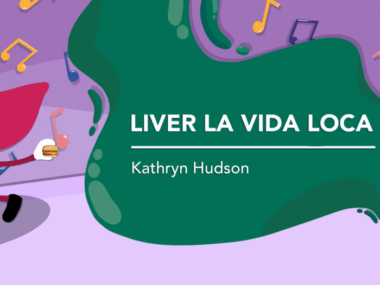I was terrified of forgetfulness and brain fog, so I took action
I panicked at first, then I received a phone call that changed everything
Written by |

Last May, I turned 56. I feel OK about being in middle age, but I’ve long had fears about growing old. What I didn’t anticipate was mixing aging with liver disease, and some of the symptoms they share: namely, brain fog and forgetfulness.
Long before I learned I had metabolic dysfunction-associated steatohepatitis (MASH), I knew about the risks of dementia in my family. I was scared because my maternal grandfather had Alzheimer’s disease. It was hard to go from one day speaking with this amazing, sharp man about world politics to having him ask me who I was several times throughout our visit. I wanted to cry.
When I talked with my mother about it, she was also afraid she might one day have to accept a dementia diagnosis. Sadly, she didn’t make it past middle age. After her death, a pathologist at the hospital called to ask if I wanted an autopsy at no cost to me or my family. Like many people, I assumed those were reserved for murder cases or overdoses. He explained that I wasn’t alone in my thinking, but that performing one would serve two purposes: It would help train future pathologists and might give me answers about my own health risks.
I said yes.
A little more than a month later, I got a manila envelope from the hospital. Inside was the written report on my mother’s body post-mortem. I braced myself for tears, but instead, I was intrigued. We already knew my mother had been in heart failure. Learning about other potential trouble spots my siblings and I might face actually made us feel better. And yes, my mother had fatty liver disease, too.
The pathologist told me to call if I had any questions, so I did. He was positive and kind. He reassured me that staying on top of my annual checkups could likely prevent many possible health problems. Also, there were no signs of brain diseases like Alzheimer’s.
I did battle a terrible case of hepatic encephalopathy when I was diagnosed with cirrhosis. For more than a month, I felt like I was losing my mind. People would tell me about things I allegedly said or did, and I couldn’t remember any of it. It was terrifying. A few weeks later, after medical intervention, I was back to normal. Since then, I’ve made a point of staying on top of anything that could cause another episode of brain fog.
So if you’re a MASH patient and sometimes become a little forgetful, don’t panic. But do contact your healthcare team. There are tests that can pinpoint the cause of your dizziness or confusion. It doesn’t have to be permanent for most people.
One way I help my memory is by giving important belongings a “home.” My keys, for example, live on the bottom stair rail. I sometimes forget to return them there, but most of the time I can find them. The same goes for items in my wallet, others I use daily, and anything else easily lost. It’s a basic system, but it works for me.
Maybe I’ll end up with Alzheimer’s someday, but I’m doing all I can to prevent it. I watch what I eat and drink and do things to strengthen my brain. I know that my liver — which I nicknamed “Larry” — is happy when I remember to retrieve my daily medications from another memory helper: my pill case with the days of the week printed on each compartment. The way I see it, every little bit helps.
Note: Liver Disease News is strictly a news and information website about the disease. It does not provide medical advice, diagnosis, or treatment. This content is not intended to be a substitute for professional medical advice, diagnosis, or treatment. Always seek the advice of your physician or other qualified health provider with any questions you may have regarding a medical condition. Never disregard professional medical advice or delay in seeking it because of something you have read on this website. The opinions expressed in this column are not those of Liver Disease News or its parent company, Bionews, and are intended to spark discussion about issues pertaining to liver disease.



Becky
I am a 72 y/o retired R.N., with stage 2 liver disease. Taking the new drug Ressdifra. I am not drinking and attempting to follow a low fat diet. I am trying not to expect the worst, which is very difficult for me. I am praying and trying to focus on the positive and taking it one day at a time.